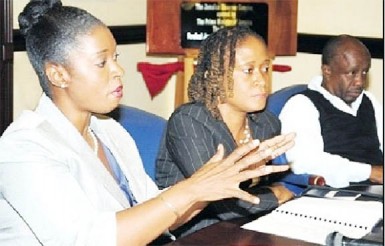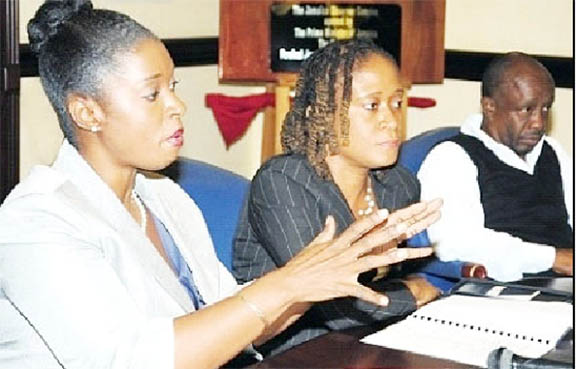(Jamaica Observer) The Ministry of Education is in the roll-out phase of a National Mathematics Policy to improve how the subject is taught in schools in light of low exam performances at both the primary and secondary levels.

The policy will seek to improve teacher and teaching quality, provide additional support for struggling students and increase access to resources.
In the first year the programme is expected to provide support for 1,365 secondary teachers in 130 secondary schools and 2,000 primary teachers in 250 primary schools. An additional 250 schools will be targeted in years three and four of the intervention.
National Mathematics Co-ordinator in the education ministry Dr Tamika Benjamin said the policy establishes some minimum standards and guidelines for several aspects of maths education, given that there were no prior standards.
“We have noticed when we go into schools, teachers tend to plan around a topic rather than plan for a lesson. So you plan that I am going to teach fractions and one lesson plan is drafted rather than a plan for each individual lesson plan to be developed in the unit,” she explained.
Dr Benjamin, who was addressing reporters and editors at this week’s Jamaica Observer Monday Exchange at the newspaper’s head offices in Kingston, noted that there are several challenges with this approach.
“There is not enough continuous assessment to determine that students have grasped the concept to move on to the next stage, so the policy requires that there must be an individual plan for each lesson,” she said.
According to Dr Benjamin, one challenge in the current system is the issue of the contact hours dedicated to the teaching of maths.
She noted that while this is less of a problem at the primary level, it is a source of concern at the secondary level.
“At the secondary level the previous average was 180 minutes per week, and the policy is now stipulating 240 minutes per week, which must be delivered over no less than four teaching sessions,” Dr Benjamin said.
The ministry, Dr Benjamin said, is aware that schools on the shift system will have the most challenges implementing this. However, there are several schools which are not on the shift system and their teaching hours fall below this standard.
“We are expecting that they will make adjustment, if not for this academic year — given that they would have already done timetables — then for the 2014/2015 academic year,” she explained.
The policy also seeks to establish qualifications for persons who are going to teach maths. Those who will be teaching at the secondary level will require, in addition to their first degree, a number of credit hours in maths education courses.
“So, for persons who would have done 45 credits in math education courses they will be able to teach up to grade 11; those with 60 credit hours will be able to teach grades 12 and 13 at the CAPE level,” she explained. “Anybody falling short of that will be considered to have done a minor and would only be allowed to teach to grade nine.”
The policy is particularly important at this time as statistics have shown that the factors contributing to the low levels of performance include the fact that only nine per cent of secondary school teachers are fully qualified to teach to grade 11; 35 per cent of primary school teachers have never passed Caribbean Secondary Education Certifi-cate (CSEC) maths; and 19 per cent of primary school teachers say they dislike the subject and are afraid of it.
Dr Benjamin said the issue of 35 per cent of teachers never having passed maths was because in the late 80s into 1990s maths was waived as a requirement for entry to teacher education programmes. Jamaica, she said, is now seeing the effects of that.
The ministry policy, she said, now stipulates that applicants must have a pass in maths to enter any of the teacher-training institutions.
Under the policy, all primary and early childhood student teachers must be observed teaching mathematics by a specialist during their teaching practice.
“In the past, persons on teaching practice were supposed to be observed a number of times, but there was nothing to require that they should be seen teaching the core areas of maths and language arts,” Dr Benjamin said.

